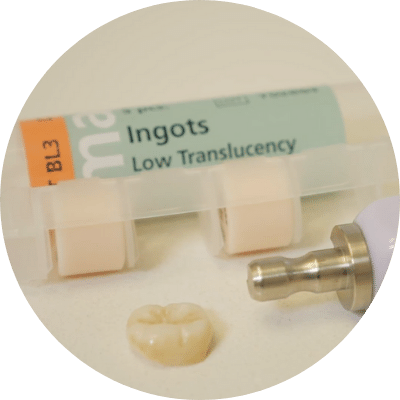Root Canal Treatment

Success rates for endodontic treatment are generally good. About 90 to 95 per cent of people who undergo root canal treatment can expect a functional tooth after the treatment. The treated tooth should last a very long time, provided that you maintain good oral hygiene and generally look after your teeth. Of course, no therapy or replacement will last as well as a healthy tooth.
Tooth structure
A tooth is mainly made of a hard material called dentine. Enamel is the surface layer that protects the visible part of the tooth (crown). The part of the tooth that sits beneath the gum line is called the root. The root helps to anchor the tooth into the jaw. Generally, front teeth have only one root, while molars generally have up to three. Within each root, there can be multiple canal spaces.
The hollow centre of a tooth is called the pulp chamber. This area contains the blood vessels, nerves and pulp. The pulp is a sensitive tissue that provides oxygen, nutrients and feeling to the tooth. The pulp extends from the roof of the pulp chamber down into the bottom of each root canal. If it becomes infected, the entire space needs to be disinfected.
The main function of the dental pulp is to regulate the growth and development of the tooth during childhood. Once the tooth is fully formed, nutrition for the tooth comes from the tissues surrounding the root. Therefore, a tooth can function without its pulp and, in the majority of cases, can be kept indefinitely. After endodontic treatment, the tooth is ‘pulpless’, but it is not a dead tooth.
Root canal procedure
You may need more than one visit to complete the treatment, depending on the difficulty of the procedure. The exact procedure chosen by your dentist may differ from the procedure outlined here. Ask your dentist for further information.
Root canal treatment has four main aims:
1. removing active decay and infection – any old or leaky fillings, tooth decay, infected nerve tissue, pus and debris are removed
2. shaping the canals – in order to be filled well, the canals within the tooth root need to be shaped into smooth, hollow tunnels that are free of irregularities where residual bacteria may sit. This shaping process involves small instruments, special disinfectants and medication. It may take a few weeks to months for these solutions to take maximum effect against stubborn bacteria within the tooth, and this step may have to be repeated several times
3. filling the canals – to prevent bacteria from re-infecting the empty canals in your tooth, they are permanently sealed with a long-lasting barrier material
4. making the tooth functional again – to make sure no bacteria from the oral environment can leak back into the tooth, a large, well-sealed restoration is put on the tooth (such as a crown). Teeth that require root canal treatment have sometimes lost considerable tooth structure due to previous decay or cracks and may require further protection in the form of porcelain, gold alloy crowns or other similar materials.
Cosmetic issues after root canal treatment
A normal tooth with healthy pulp is yellowish-white in colour. A pulp-free tooth may eventually turn grey. The dentist can advise you on appropriate aesthetic (cosmetic dentistry) procedures.
Who can perform root canal treatments?
All dentists are trained to carry out root canal treatments. Some dentists will refer complicated and emergency cases to an endodontist once your tooth has been assessed. Endodontists are dentists who are specialists in root canal treatment.
If you would like a specialist opinion, ask your dentist for a referral to an endodontist.
Read the full article here.
Services We Mentioned
Related Articles
Common Causes of Bad Breath
Bad breath is usually caused by poor dental habits, infections, the foods you eat and unhealthy habits such as…
How to Eat Your Daily Vitamins and Minerals
Though the morning chewable may be tasty, to get the recommended amount of vitamins and minerals every day…










